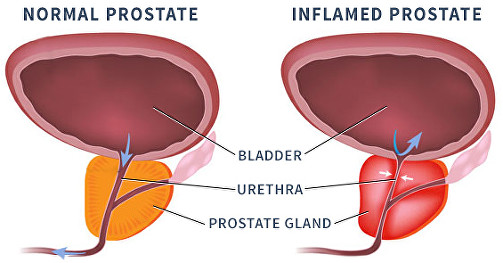Prostate Enlargement Causes, Symptoms, and Treatment
Prostate enlargement, also known as benign prostatic hyperplasia (BPH), is a common condition in men as they age. It occurs when the prostate gland grows larger, pressing against the urethra and causing urinary problems. While BPH is not cancerous, it can significantly affect your quality of life. If you’re experiencing symptoms of prostate enlargement, consult a urologist like Dr. Abdul Rauf for expert diagnosis and treatment.

What Is Prostate Enlargement?
The prostate is a small gland located below the bladder in men. It surrounds the urethra, the tube that carries urine from the bladder out of the body. As men age, the prostate gland often enlarges, a condition called benign prostatic hyperplasia (BPH). This enlargement can squeeze the urethra, leading to difficulty in urination and other urinary symptoms.
Causes of Prostate Enlargement
The exact cause of prostate enlargement is not fully understood, but it is linked to hormonal changes as men age. Key factors include:
- Aging:Prostate enlargement is more common in men over 50.
- Hormonal Changes:Changes in testosterone and estrogen levels may contribute to prostate growth.
- Family History:A family history of BPH increases your risk.
- Lifestyle Factors:Obesity, lack of physical activity, and poor diet may play a role.
Symptoms of Prostate Enlargement
The symptoms of prostate enlargement vary depending on the size of the prostate and the extent of urethral compression. Common symptoms include:
- Frequent urination, especially at night (nocturia)
- Difficulty starting urination
- Weak or interrupted urine stream
- Feeling of incomplete bladder emptying
- Urgency to urinate
- Straining to urinate
- Dribbling at the end of urination
If left untreated, prostate enlargement can lead to complications such as urinary tract infections (UTIs), bladder stones, or kidney damage.
Diagnosis of Prostate Enlargement
To diagnose prostate enlargement, Dr. Abdul Rauf may perform the following tests:
- Medical History and Symptoms Review:Discussing your symptoms and medical history.
- Digital Rectal Exam (DRE):A physical exam to check the size and shape of the prostate.
- Urine Test:Analyzing a urine sample to rule out infections or other issues.
- Blood Test:Checking prostate-specific antigen (PSA) levels to rule out prostate cancer.
- Ultrasound or Imaging:Using imaging tests to measure the size of the prostate and check for blockages.
Treatment Options for Prostate Enlargement
The treatment for prostate enlargement depends on the severity of symptoms and the size of the prostate. Common treatment options include:
- Lifestyle Changes:
- Reducing fluid intake before bedtime.
- Avoiding caffeine and alcohol, which can irritate the bladder.
- Practicing bladder training exercises.
- Medications:
- Alpha-blockers to relax the muscles of the prostate and bladder.
- 5-alpha reductase inhibitors to shrink the prostate over time.
- Minimally Invasive Procedures:
- Transurethral Resection of the Prostate (TURP):Removing part of the prostate to relieve pressure on the urethra.
- Laser Therapy:Using laser energy to remove excess prostate tissue.
- Prostate Lift:A procedure to lift and hold the enlarged prostate away from the urethra.
- Surgery:
- In severe cases, surgery may be required to remove part or all of the prostate.
Preventing Prostate Enlargement
While prostate enlargement is often a natural part of aging, you can take steps to reduce your risk or manage symptoms:
- Maintain a Healthy Weight:Obesity is linked to an increased risk of BPH.
- Exercise Regularly:Physical activity can improve urinary and overall health.
- Eat a Balanced Diet:Include fruits, vegetables, and whole grains while limiting red meat and processed foods.
- Stay Hydrated:Drink plenty of water, but avoid excessive fluids before bedtime.
- Regular Check-ups:Visit a urologist regularly, especially if you’re over 50 or have a family history of prostate issues.
Why Choose Dr. Abdul Rauf for Prostate Enlargement Treatment?
Dr. Abdul Rauf is a highly experienced urologist specializing in the diagnosis and treatment of prostate enlargement. He uses the latest techniques and personalized care to help patients manage their symptoms and improve their quality of life. Whether you need lifestyle advice, medication, or surgical intervention, Dr. Abdul Rauf is here to provide expert care.
📧 Email: info@drabdulrauf.com
🌐 Website: www.drabdulrauf.com
📍 Address: IMC Hospital DHA Lahore
📞 Phone: 0336 8609825
Don’t let prostate enlargement disrupt your life. Contact Dr. Abdul Rauf today for expert care and effective treatment options.
